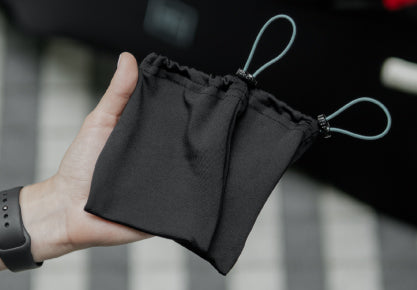How Sleep Disorders Can Affect Your Performance in Sports

If you’ve been feeling tired or groggy during your workouts, it's important to consider the role of sleep in how you feel. Sleep disorders can affect both your performance and mental state when it comes to working out. In this blog post, we will look at how sleep affects the athletic ability and what some healthy practices for getting a good night's rest might be.
Sleep has a significant impact on athleticism and it's known that athletes who sleep well can perform better than those who don't. The National Sleep Foundation suggests that adults should strive for seven-nine hours of time spent asleep each night, while teens need nine hours of uninterrupted slumber per day.
Importance of Sleep for Athletes
Sleep is important for athletes because it allows their bodies to recover from the day's events.

During sleep, the body produces growth hormones that help muscles rebuild and recover. This is especially important for cyclists who ride every day and for hours at a time
A single night without sleep can set you back quite a lot as shown in a study in 2019. Cyclists who slept less had a slower finishing time and higher mood disturbance.
Additionally, if an athlete is tired they are more likely to make mistakes or injure themselves. In fact, it's known that athletes who get less than eight hours of rest are unlikely to get severely injured due to high alert abilities.
If you go to bed late and wake up early, your body will not have a chance to fully recharge from yesterday’s workout.
This results in disturbances that can affect your play time in sports as well. If you have trouble sleeping at night due to stress, overstimulation from technology, or other factors, then this stress carries into the next day and can negatively affect how you feel and perform.
Impact of Sleep on Performance of Athlete

College athletes who usually get less than eight hours of rest per night are more likely to be injured. Furthermore, they also report higher levels of day-to-day fatigue that can lead to slower reaction times and problems concentrating during playtime.
Athletes need to make sure they are getting the proper amount of rest each night because it can improve performance and prevent injuries from occurring.
Many people struggle to play at a high-quality level when they're tired, and this isn't just because their body is tired. The mind also struggles to process information that fast, which results in poor decisions during the game.
Getting enough rest is essential when it comes to playing sports at the highest level. While some athletes may be able to perform well with less than eight hours each night, most will not be able to function at their full potential.
Negative Effect of Sleep Deprivation
If you're not getting enough sleep, your body will start to produce a stress hormone called cortisol. This hormone can have a negative impact on the body's ability to recover from exercise and can also lead to weight gain. Additionally, problems with vision and focus can occur when you don’t get enough rest.
And this is not the end of your problems since deprivation has many other negative effects. Here are the most common ones:
Quicker Exhaustion
Without enough sleep, you're more likely to exhaust yourself in less time than usual. You might not even have enough strength to pull through the workout, especially if you're into running, cycling, and swimming.
This is because your body didn't have enough time to recover from yesterday and is not ready for the athletic challenge.
Difficult Decision Making
Not getting enough rest can lead to poor decision-making. So, when you're tired after a sleepless night, your reaction times are going to be slower and you might not be able to make the right choices in time.
This is because the brain does not function well when it lacks sleep. It struggles with processing even the most basic information.
Decreased Reaction Time
If you had a good night's rest and you're all energized, then your reaction time is probably quick. If not, it can still take longer than usual for your mind to process information and react accordingly.
This is bad for most sports where you have to think quickly.
Daytime Sleepiness

If you're feeling sleepy during the day, it's likely that you didn't get enough rest at night. This is extremely dangerous in sports, but also when you're driving or operating heavy machinery.
It can also lead to a loss of focus and decreased productivity.
Risk of Injury
Not getting enough sleep can increase your risk of getting injured while playing sports. This is because when you're tired, you might not be as alert as you should be. You might not even have the strength to perform at your best.
Risk of Illness
Sleeping is also essential when it comes to keeping your immune system strong. If you're not getting the recommended hours, then you might get sick more often.
This is because your body's defenses are down and it cannot fight off illnesses as well as usual.
Different Athletes, Different Sleep Habits
While some athletes can perform well with less sleep, the vast majority of them require eight or more hours each night.
This means that they need to go to bed and wake up at the same time every day in order to feel their best.
For example, cyclists should sleep eight to nine hours if they’re riding 150 miles per week. If they ride less, they can thrive just as well on five to eight hours of rest.

For athletes who have a busy lifestyle and don't have enough time for a full night, it might be difficult to get nine hours of sleep. It's okay if you're used to running on fewer hours and you find this to work for you.
People have all kinds of habits and there's no need to change them if they're working for you.
Sleeping Tips for Athletes
There are many different sleeping tips for athletes, but here are some of the most important ones:
- Track Your Sleep Time
You should know how much sleep you're getting every night so that you can compare it with what you need. This way, you'll be able to plan ahead and adjust your schedule accordingly.
While most people are not aware of how little time they spend sleeping, the right app can monitor this for you.
- You Need to be Consistent
Whether or not you have a set bedtime routine, it's important that you stick to it every night. This is because your body needs time to adjust and different sleeping patterns can affect its ability to recover.
- Don't Let Your Phone Disturb You
Keep your phone out of reach while sleeping because most screens emit blue light that can mess with your circadian rhythm.
Conclusion
Now that you know how sleep deprivation can affect your athletic performance, you're one step closer to becoming the best athlete you can be.
You need to make sure that your body is in its best shape and give it the rest it deserves at night.
This way, you'll have enough strength and motivation to keep going the next day, especially if you're training hard for a big competition or a race.
This article for Velosock has been written by Sleep Advisor.




























Leave a comment